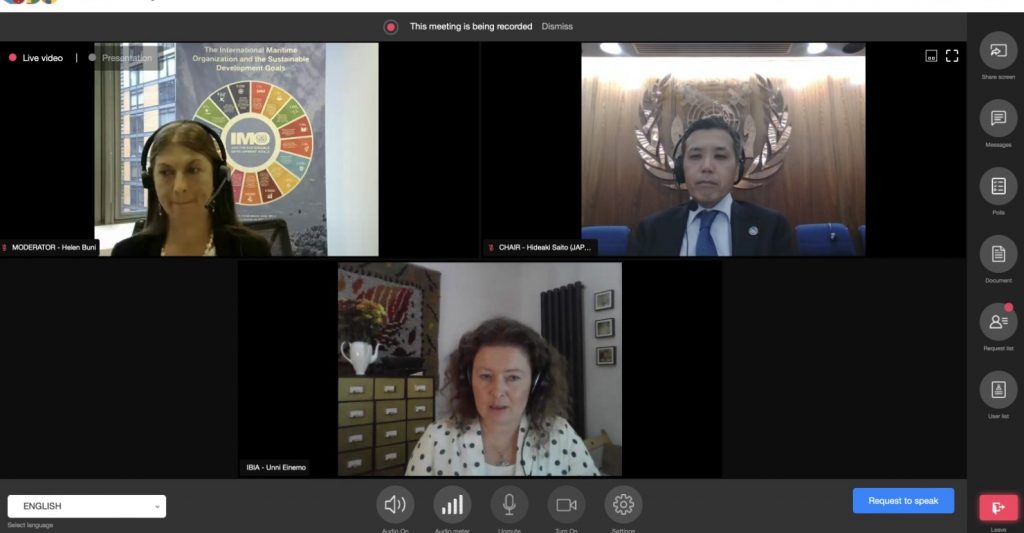IBIA to MEPC 77: We need the right regulatory tools to achieve GHG reductions
The market will respond with fuels and technology solutions
IBIA has participated in all the IMO meetings where policy and regulatory tools to cut greenhouse gas (GHG) emissions from international shipping have been discussed, observing closely to assess the impact on our members in the marine fuels sector.
At the 77th session of the IMO’s Marine Environment Protection Committee (MEPC 77), IBIA’s Director and IMO Representative, Unni Einemo, delivered the following statement outlining our views on what is needed to achieve GHG reduction goals.
IBIA statement to MEPC 77:
We thank all submitters of documents to this and previous sessions of the Committee, and the ISWG-GHG on this hugely important and complex agenda item.
Decisions taken at the IMO will have major impact on the marine fuels sector, and will set the pace for the transition to low and zero-emission shipping. We need the market to respond with fuels and technology solutions, and we need to ensure the fuels and technologies on offer are technically feasible, safe to use and truly sustainable.
To achieve this, we need the right regulatory signals.
For sustainability, we need a holistic approach, taking full well to wake lifecycle emissions into account; anything else would discourage or even eliminate several options that are carbon neutral when considering full lifecycle emissions.
We therefore need a workable lifecycle assessment methodology and associated certification schemes, preferably a methodology that will apply a single and consistent international approach to determine the lifecycle analysis of fuels as supplied to the maritime sector.
We also need to stimulate innovation, and demand for alternative fuels.
For this we will likely need a substantial price on carbon and CO2 equivalents to effectuate real change through market-based measures.
We know from the transition to IMO 2020 that most shipping companies waited as long as possible to comply with the 0.50% sulphur limit because low sulphur fuels cost more, so it is clear that the price of fuel is a very important market signal.
The proposals for a gradual phasing in of a GHG intensity limit have great potential to stimulate demand for zero and low carbon fuels. We already have a track record for such a gradual phasing in of sulphur limits in MARPOL Annex VI.
We saw that for ships to start using lower sulphur fuels, we needed clear regulatory signals to stimulate demand. The supply market responded to that demand by providing lower sulphur fuels in time for whenever new emission control areas and reduced sulphur limits came into effect.
We also saw that, despite fears of lacking availability, low sulphur fuels or technology solutions to help the global fleet comply with the IMO 2020 sulphur limit were provided.
A gradual phase-in of a low GHG intensity limit could be a very effective tool to ensure predictable levels of demand, which the supply side would respond to.
